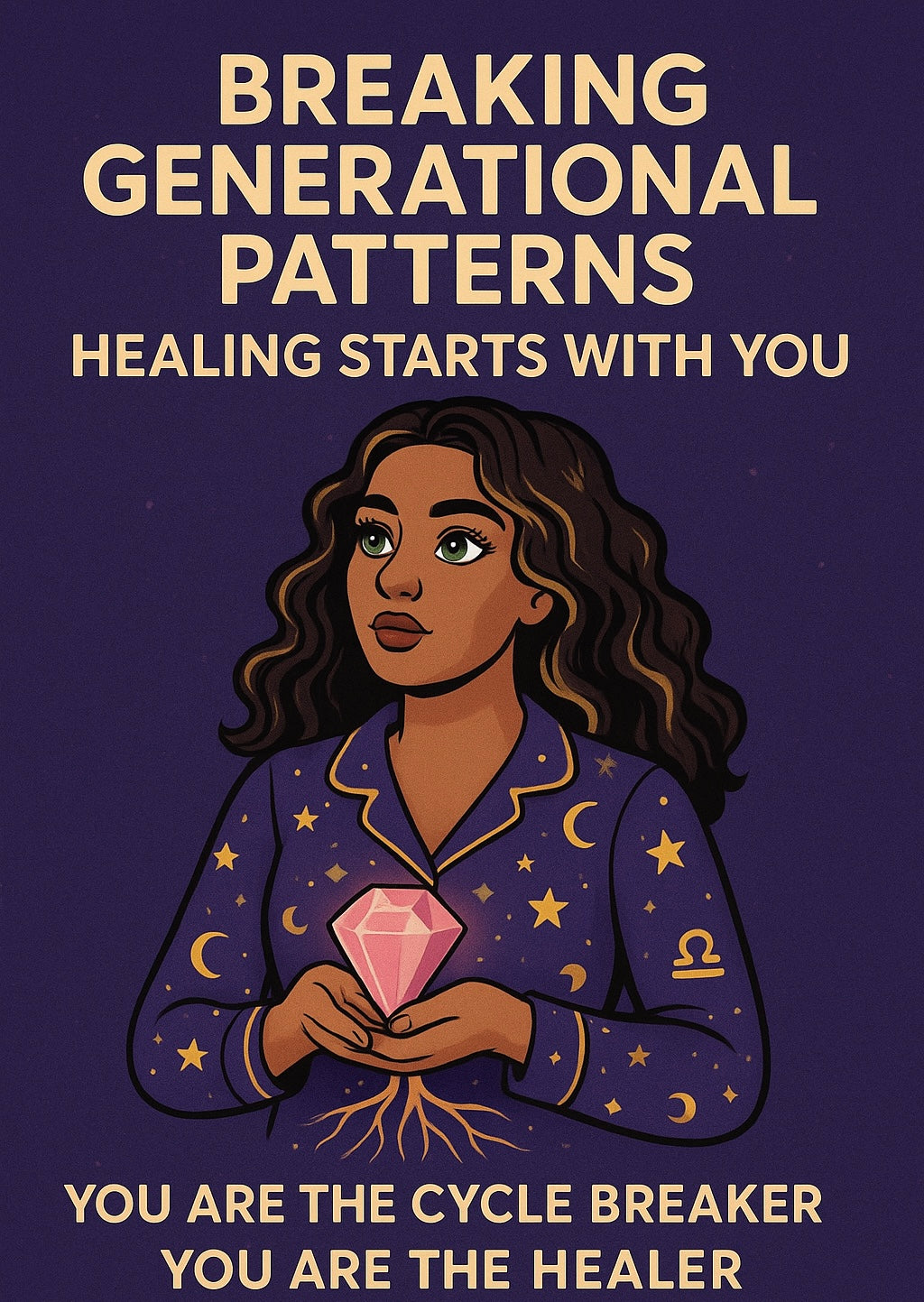
🌱 Breaking Generational Patterns: Healing Starts With You
Share
We often hear the phrase: “It runs in the family.” But what if some of the things that “run in the family” are cycles of pain, silence, or unhealthy habits? Generational patterns—whether emotional, mental, or behavioral—don’t have to define you forever. Healing starts the moment someone is brave enough to say: “This ends with me.”
🔎 What Are Generational Patterns?
Generational patterns are beliefs, behaviors, and coping mechanisms passed down from one generation to the next. These can include:
- 🚫 Cycles of silence instead of communication
- ⚡ Trauma responses like anger or avoidance
- 💔 Patterns of unhealthy relationships
- 💸 Financial habits like overspending or never saving
- 😶 Stigma around mental health
Research in epigenetics shows trauma can actually impact DNA expression, meaning unresolved pain can influence not just you—but also your children and grandchildren. (Source: National Institutes of Health, 2020).
🌊 The Ripple Effect of Unhealed Trauma
Unhealed wounds rarely stay contained. For example:
- A parent who never learned how to manage stress may unintentionally raise children in a tense, high-stress environment.
- A family that avoids therapy may pass down silence and shame around asking for help.
- Generations of unhealthy money habits can create cycles of poverty or financial instability.
But here’s the truth: healing creates new ripples too. When you break one unhealthy cycle, you plant seeds of freedom for the next generation.
✨ Signs You May Be Carrying a Generational Pattern
- You repeat the same relationship struggles your parents or grandparents faced.
- You feel “guilt” for wanting something different than what your family chose.
- You catch yourself saying, “That’s just how I was raised,” even if it doesn’t serve you.
- You notice the same emotional struggles across multiple generations.
🛠️ How to Break the Cycle
Breaking generational patterns takes self-awareness, courage, and consistency. Here’s how you can start:
1. Acknowledge the Pattern:
You can’t heal what you don’t recognize. Journaling, therapy, or even family conversations can help you notice recurring behaviors or beliefs.
2. Educate Yourself:
Learn about how trauma, poverty, and family dynamics impact mental health. The more you understand, the more empowered you are to create change.
3. Seek Professional Help:
Therapy, counseling, or support groups can give you the tools your family may have never had access to.
4. Practice Emotional Awareness:
Instead of reacting, pause and ask: “Is this response mine, or is it inherited?” This helps you respond with intention rather than repeating old cycles.
5. Create New Rituals:
Replace toxic cycles with healthier ones. Examples:
- Weekly family check-ins instead of silent tension.
- Teaching your kids about money management.
- Practicing gratitude, mindfulness, or prayer daily.
6. Offer Yourself Grace:
Healing isn’t linear. You’ll have setbacks. The goal isn’t perfection—it’s progress.
🌟 Why Healing Starts With You
You might not have chosen the pain, but you have the power to stop it from continuing. By healing yourself, you become:
- A cycle breaker.
- A blueprint of hope for the next generation.
- A living testimony that “what runs in the family” can be rewritten.
💬 Final Word
Breaking generational patterns is not easy—it’s courageous. You’re rewriting the story not just for yourself, but for everyone who comes after you. Healing starts with you, and the ripple of change you create can echo for generations. 🩷
